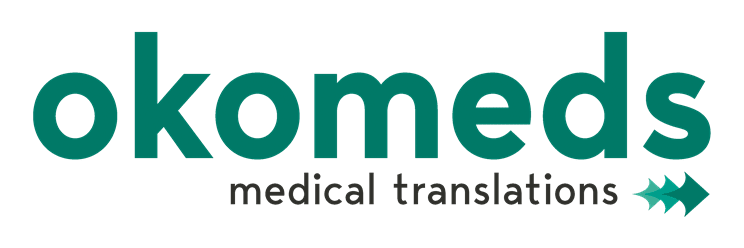
02 Mar Personalized lifestyle medicine translation
It’s a fact that the current largest healthcare approach is a reactive one.
¿Is personalized lifestyle medicine the new approach required to defeat non-communicable diseases?
Although sick care can be precise for severe diseases, several medical studies and their translations show that in today’s world, with an aging society, the main diseases are not grave ones, but others that progress very slowly, and are related to an unhealthy lifestyle (lifestyle medicine). They are called the non-communicable diseases.
There is still a lot of work to do in order to get this message across the world. Both lifestyle medicine and medicine translation roles shall therefore be capital.
Different studies reveal that non-communicable diseases’ risk increases with different unfavorable lifestyle choices, such as, alcohol, tobacco, unhealthy diets, or physical inactivity. In this sense, it has been estimated that, avoiding only this four types of choices, 80% of premature deaths and the so called non-communicative diseases could be prevented.
Can you imagine the possibilities of lifestyle medicine and its translation?
We are talking about diseases as well known to everybody as cancer, cardiovascular disease, obesity, type 2 diabetes, arthritis or chronic respiratory diseases. These illnesses are well spread upon the world’s population and are highly correlated to modern sedentary lifestyle.
According to the WHO non-communicable diseases are responsible for 63 % of deaths. And that is a great number.
New technologies and the possibility of personal data collection
At the same time powerful new technologies make possible incredible amounts of data collection. Here researchers, clinicians, physicist and medicine translation have a promising landscape to grow.
But, how are they connected to personalized lifestyle medicine?
Data collection and its interpretation, both in general or particular terms, can clearly ameliorate the results of the randomized controlled trials that are currently the standard in clinical research.
Randomized controlled trials exclude a lot of criteria to homogenize the studied population. But we know that “one fits all” public health recommendations, although have been useful, are insufficient to meet all the population’s needs. And, in particular, have proven insufficient to tackle non-communicable diseases.
Omics technologies have also allowed comprehensive analysis of how biological systems are impacted upon nutrition, exercise or other external perturbations. Platforms such as epigenomics, genomics, transcriptomics, metabolomics and proteomics, have allowed powerful comprehensive analysis.
Nowadays, Studies show a large range of differences between individuals’ reactions, not only to drugs, but especially to food and nutrients.
Each individual is different because of environmental factors, nutritional requirements, epigenetics, metabolism, lifestyle, even variations in the gut microbiome, predisposition to a disease… They are not just due to genetic variations.
Personalized lifestyle medicine approach
Therefore, a new approach is clearly demanded.
A solution can be, according to several organizations, personalized lifestyle medicine, starting with prevention. In this sense, medicine translation has to play a big role. If prevention is going to be emphasized over treatment, getting the message everywhere is a must.
But, what is personalized lifestyle medicine?
The American College of Preventive Medicine defines this type of medicine (lifestyle medicine) as a scientific approach that uses lifestyle interventions such as nutrition, stress reduction, physical activity, alcohol and tobacco avoidance, and rest to decrease disease risk and illness burden.
And, how is a shift in the healthcare system even possible?
Possibilities go from environmental data collected via personal monitoring devices related to physical activity, nutrition… worn by patients.
Patients more and more want to be active participants in information exchange and decision-making processes.
Emerging research projects give us a hint of how methods and systems may lead to personalized lifestyle medicine and its translation.
The future
The current healthcare system is no longer sufficient in addressing non-communicable diseases epidemic.
All stakeholders will need to work together to strengthen the science, to improve knowledge delivery, and to improve public education in order to create the needed paradigm shift in healthcare.
To summarize, personalized lifestyle medicine and its translation will be the keys to empower patients to regain control of their health.






Sorry, the comment form is closed at this time.